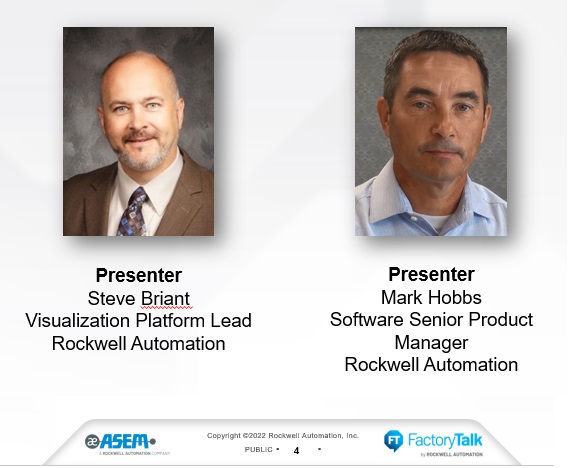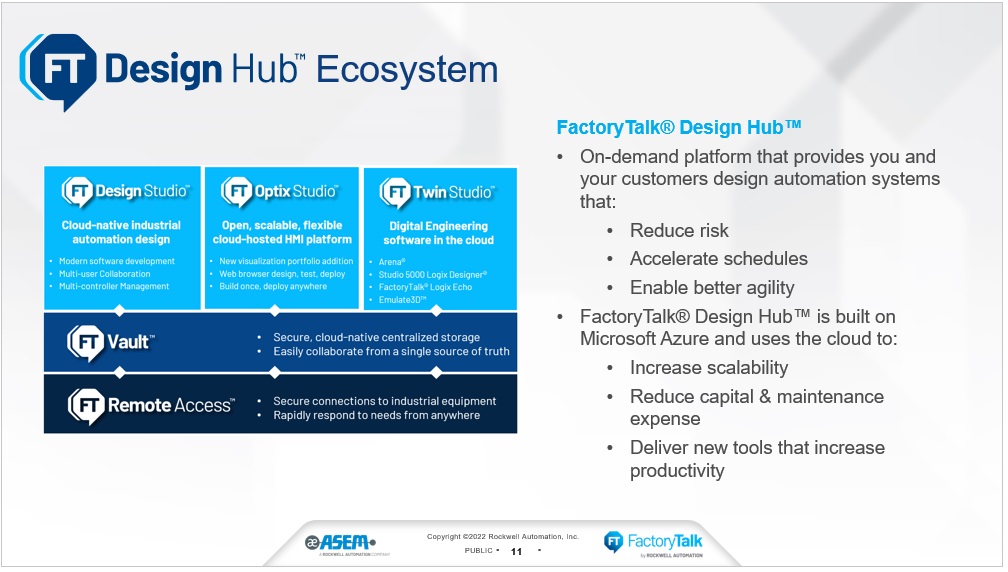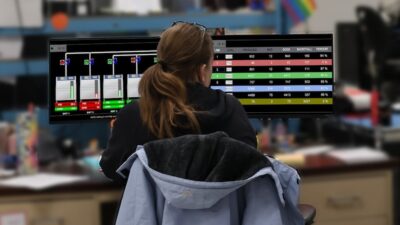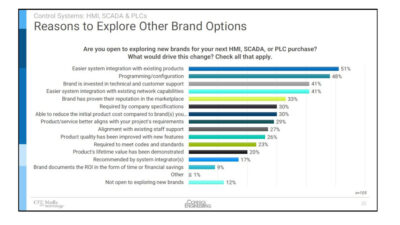Rockwell Automation through its 2020 acquisition of ASEM (a provider of human-machine interfaces (HMI) and industrial PCs), explains collaborative advantages of building and maintaining HMI systems using software-as-a-service (SaaS) to enable workflows, track changes and versioning. Learn more in a May 11 webcast, archived for a year.

Learning Objectives
- Understand product information, specifications for FactoryTalk Optix, a new open, collaborative, extensible visualization platform in the Rockwell Automation FactoryTalk line.
- Learn how selection, design, use and maintenance of HMIs can be easier with less risk.
- Review how digital twin models can enhance carbon capture.
HMI upgrade insights
- Rockwell Automation experts provide product information, specifications and explanations on:
- FactoryTalk Optix, a new open, collaborative, extensible visualization platform in the Rockwell Automation FactoryTalk line enabled in part by Rockwell Aujtomation’s 2020 acquisition of ASEM.
- Steve Briant, visualization platform lead, and Mark Hobbs, software senior product manager, both with Rockwell Automation, explain how selection, design, use and maintenance of HMIs can be easier with less risk.
Building and maintaining human-machine interface (HMI) systems can provide collaborate efficiencies for automation and operations teams by using software-as-a-service (SaaS) to enable workflows, track changes and versioning. A new visualization platform accelerates value delivery with modern technologies, innovative designs and scalable deployment options. Rockwell Automation experts explain how the Rockwell Automation 2020 acquisition of ASEM, a provider of HMIs and industrial PCs (IPCs), is helping industrial automation users to:
-
Learn how to harness the cloud and become more agile through collaborative engineering.
-
Understand how to create an HMI application and deploy to any device.
-
Learn how to style HMI graphics for a global audience.
-
Explore how to build HMI designs from the ground up integrating OPC UA and extensibility that supports Industry 4.0.
Steve Briant, visualization platform lead, Rockwell Automation, and Mark Hobbs, software senior product manager, (photos) Rockwell Automation, said new tools enable automation users, original equipment manufacturers (OEMs) and system integrators to “Build a better HMI with collaborative, modern, cloud technology.” The May 11 webcast covers more advantages by offering product information, an explanation of design and operations collaboration, modern graphics design and open extensibility.

Product information, specifications for FactoryTalk Optix
FactoryTalk Optix (FT Optix), a product introduction in the Rockwell Automation FactoryTalk line, resulted from the Rockwell Automation and ASEM collaboration on a new HMI offering in the visualization portfolio. Briant and Hobbs described the software for HMI, industrial Internet of Things (IIoT) and smart manufacturing applications as a “new open, scalable visualization platform with options,” fitting into the FactoryTalk Design Hub Ecosystem by Rockwell Automation (photo). They described the automation design SaaS journey in three steps:
- Make data accessible by moving it to the cloud.
- Rehost familiar applications on the cloud to more easily collaborate.
- Create new, native cloud-based applications.

Easier HMI selection, design, use, maintenance with less risk
Using HMI graphic terminals with automation design software provides a ready-to-run solution, Briant and Hobbs said, with easier product selection, cost-effective options and a locked-down system design with closed operating system and firmware to reduce risk in implementation and maintenance. Additional information in the webcast cover options for design, deployment, graphics and extensibility using OPC UA, an explanation of available system components and software and design and operations collaboration benefits along with advice about modern graphics capabilities and open extensibility and connectivity.
Edited by Mark T. Hoske, content manager, Control Engineering, CFE Media and Technology, and webcast moderator, [email protected].
KEYWORDS: Human-machine interface, HMI design, HMI operation
CONSIDER THIS
Does your human-machine interface system enable open and scalable connectivity, collaboration, easier implementation?




